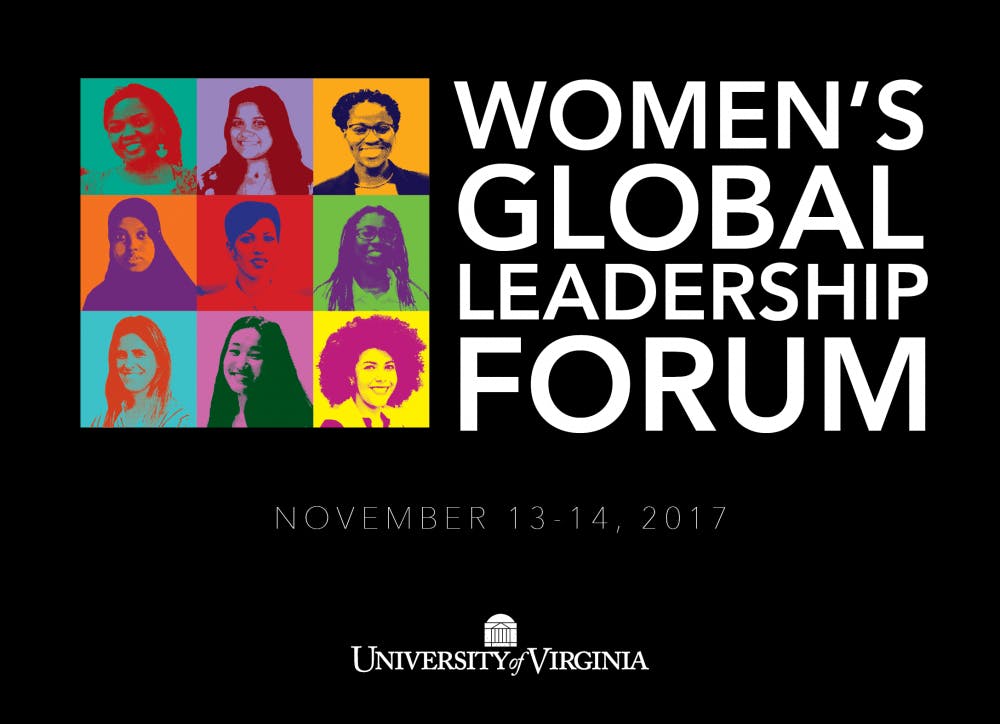A panel addressing health and education challenges facing women took place Monday morning as part of the Women’s Global Leadership Forum. The discussion was facilitated by Rebecca Dillingham, director of the University’s Center for Global Health, and was comprised of of women who gave their global perspectives on the issues.
Newcomb Ballroom was packed with an audience that included high schoolers, University students, alumni and faculty members.
Vivian Pinn, the first full-time director of the Office of Research on Women’s Health at the National Institutes of Health, spoke briefly about being the first African-American female graduate from the University Medical School.
“I went into that first morning class in the fall of 1963 thinking that when I looked around the room and saw only white men — that the other women and people of color must just be late getting there,” Pinn said. “Then I realized that I was it. It was me and my classmates.”
Pinn said one of her main priorities she has pursued throughout her life is trying to ensure the medical world listens to women and discusses women’s health.
“I have focused on things that have been important to me my whole life,” Pinn said. “That is — What about the health of girls and women? What about girls getting careers in medicine? I couldn’t think of a better time to focus my energy on women’s health.”
The panel centralized their conversation on the importance of enabling education at a young level to facilitate greater gender equality amongst leadership roles.
Maya Ajmera, president and CEO of the Society for Science and the Public, spoke about her trip to India in which she saw train platform schools. The trip inspired her Global Fund for Children which works on behalf of vulnerable children. Ajmera said in the future she wants to focus on empowering local, grassroots organizations to enact change.
“Grassroot entrepreneurs … They are the ones that resources really need to get put into because I think they’ve been starved,” Ajmera said. “I think they’ve been starved in this country, but I also see that starvation globally. So if we’re going to reach people, it’s through the grassroots.”
Ajmera also said one of her main priorities is to ensure that girls continue their education beyond primary school.
“We have to get the education of girls at the secondary level globally up,” Ajmera said. “The development goals of the U.N. have achieved great success in getting primary school admissions very high. But secondary school really has to be an emphasis.”
Abinet Sitotaw, a gender and nutrition advisor for nonprofit organization CARE-Ethiopia also said education was important in promoting women and girl’s empowerment. Speaking of her own personal mission and the Mandela Washington Fellowship, Sitotaw said her priorities involved getting girls into safe educational institutions.
“It’s going to be a leadership academy whereby I manage to bring a group of young girls who cannot attend secondary schools to the city,” Sitotaw said. “I want to give them a boarding school whereby they can get a state of the art education and also leadership skills.”
In an interview after the panel discussion, Dillingham said she wanted to encourage students to attend University-facilitated events and take advantage of the connections which the University is able to provide.
“Any students here need to be talking to these wonderful women,” Dillingham said. “You have to seize those opportunities and not let a lecture like this hit you, impact you and then pass you by. Make it make a difference.”
Agnes Binagwaho, vice chancellor for the University for Global Health Equity, said these events are important in order to facilitate discussion and to encourage more proactiveness.
“I had the occasion to spend 24 hours to meet incredible people that U.Va. has bought here,” Binagwaho said. “This type of gathering is an occasion to do a singularity — to exchange and confront the ideas for going further, faster, better.”
Fré Halvorson Taylor, who is a student at Charlottesville High School, said she was excited about the conference and its global perspective.
“Events like this are important to understanding the breadth of feminism,” Taylor said. “I hope events like these can expose me and my peers to the variety of ways people everywhere interpret the meaning of ‘advancing women.’”







